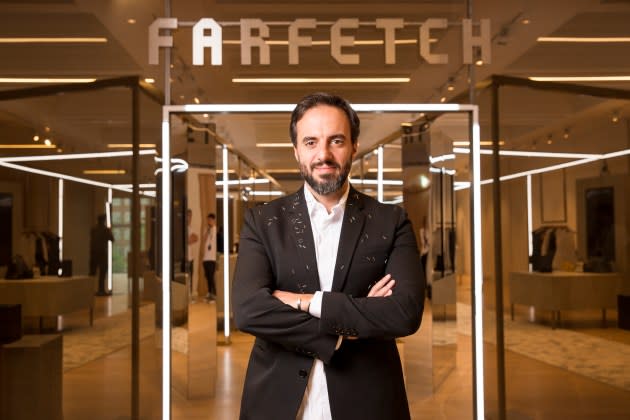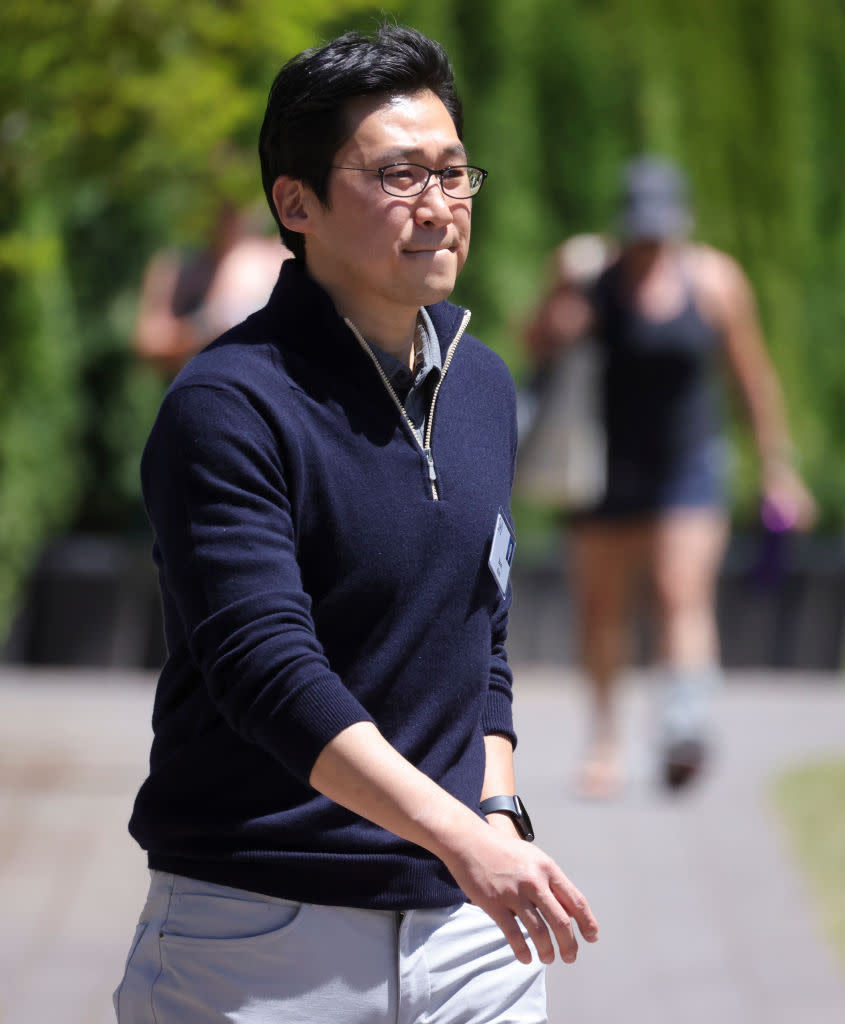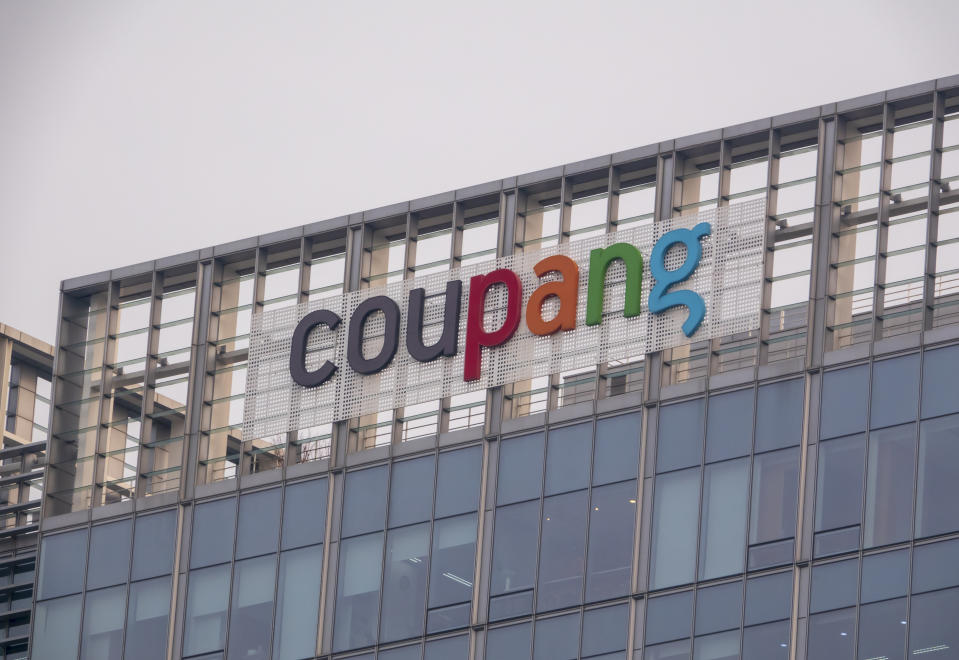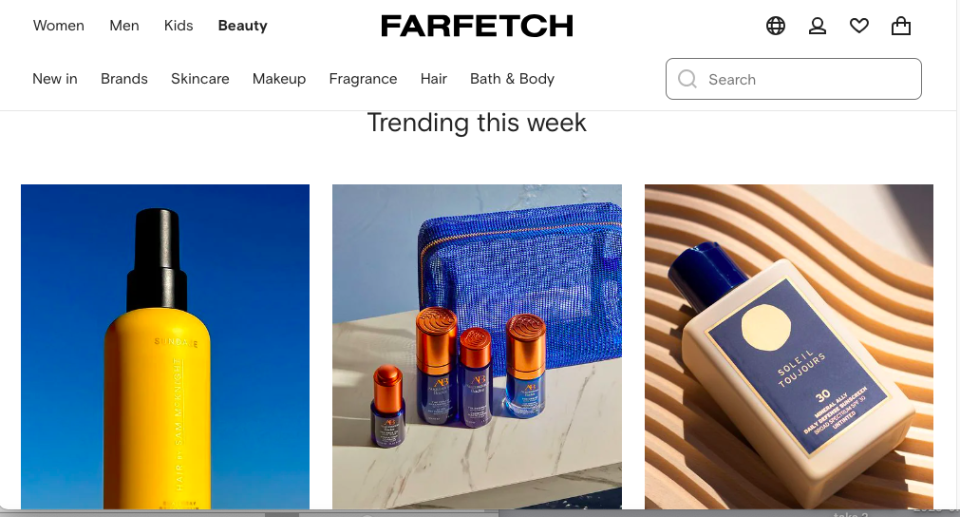José Neves Steps Down as Farfetch CEO in Shakeup at Coupang

Updated Feb. 15 at 6:21 p.m. GMT
LONDON — José Neves is stepping down as chief executive officer of Farfetch two months after Coupang and the San Francisco-based firm Greenoaks Capital purchased the e-commerce platform out of administration and pledged $500 million to help revive it.
More from WWD
Misunderstood Monsters: Marco Capaldo Goes Skin Deep for 16Arlington's Fall 2024 Collection
Ones to Watch: The Rising Stars of London Fashion Week 2024 February Edition
For Fall 2024, JW Anderson Embraces the Pragmatic, and the Grotesque
According to a memo seen by WWD, Neves will remain at Farfetch in a consultancy role and will not be directly replaced as CEO. Going forward, the Farfetch business will be overseen by Coupang’s founder Bom Kim and the Farfetch executive team.
Neves’ move comes amid a slew of managerial layoffs at the company. Elizabeth Von Der Goltz, chief fashion and merchandising officer at Farfetch and CEO at Browns, and Kelly Kowal, head of Farfetch Platform Solutions, are among the top managers exiting the business.
A Farfetch spokesperson said: “As we assessed key priorities and resources across the business, we made the difficult, but necessary, decision to reduce global headcount and redundant roles.
“This decision secures the future of the business and as a result, Farfetch can now operate from a position of strength and focus on what we do best: deliver exceptional experiences for brands, boutiques and customers.”
More job cuts are expected to be revealed in the next few days.
According to the memo, Coupang wants to streamline the business, recover “financial strength and focus on what we do best: deliver exceptional experiences for brands, boutiques, FPS clients and customers. This new, better-structured organization will continue to move with speed to unlock the full potential of the online luxury space that Farfetch pioneered.”
The company said conversations with those impacted by the redundancies will start in Portugal on Friday and in the U.K. and other geographies on Monday.

Although Coupang did not specify the number of job cuts planned, it is understood that Farfetch had staffed up considerably during, and immediately after, the pandemic to deal with increased consumer demand.
In a memo issued to staff later on Thursday, and seen by WWD, Neves said that “after 15 years of dreaming up, creating and growing Farfetch,” his decision to step down was a difficult one, “but I believe the company is in great hands.”
He said the path that Farfetch is charting now “will help strengthen it. As I step away from the CEO duties, I will be celebrating together with you every success that Farfetch achieves for many years to come.”
Neves founded Farfetch in 2008, and six years later the company became one of the U.K.’s few unicorns with a $1 billion-plus valuation. Over the years, Farfetch would become a $24 billion company, but all that unravelled in the final quarter of 2023, leaving Neves, and his remaining investors, out of pocket.
Once a feted entrepreneur who had dreamt of democratizing fashion online and enabling retailers and brands — no matter how large or small — to reach worldwide audiences, Neves fell victim to his own management fumbles, and to certain events beyond his control.
Russian sanctions, China’s long road out of lockdown, and spiralling inflation and interest rates all took their toll on Farfetch and on tech companies generally.
An online luxury retailer that had yet to turn a profit, Farfetch was all of a sudden seen as vulnerable, and shareholders began to panic. The end result was a pre-pack administration and distress sale to Coupang.

Some investors still recognize his achievements, and describe him as a trailblazer in the still evolving world of e-commerce.
Danny Rimer, a partner at Index Ventures, an early investor in Farfetch, called Neves a “very special founder and an exceptional entrepreneur.” He said Neves had a clear vision of what the industry could achieve and the role that Farfetch could play in the wider ecosystem.
While Rimer acknowledges that certain things “could have been done differently” at Farfetch, he said the platform made a significant impact on the fashion industry, and on e-commerce as a whole.
Another significant, early-stage investor who spoke on condition of anonymity said Farfetch was the victim of “black swan” events, including trade tussles between the U.S. and China and the war in Ukraine.
The investor admitted that Farfetch was also the victim of poor management and balance sheet oversight. Debts and overheads were too high, and expansion plans were too aggressive.
“Still, José was an incredible visionary with a work ethic and willpower to match. He was very generous with his team, and a loyal, broad-minded leader,” the person said.
Carmen Busquets, another early-stage investor, had been hoping to raise between $500 million and $1 billion to rescue Farfetch last year, and had proposed a five-year plan with the aim of driving fast growth and profitability.
“Farfetch remains the leading company in the industry. It has driven fundamental change to the distribution of fashion globally over the last 15 years,” Busquets told WWD in December.
She described it as a “strategic asset, and given the collapse in market confidence and valuations in the sector there are a number of tie-ups and consolidation opportunities for Farfetch as a leading e-commerce platform for the 21st century.”

Coupang first revealed its purchase of Farfetch on Dec. 18, and since then the company has taken full control of the London-based platform, which was delisted from the Nasdaq as part of the sale.
A Fortune 200 company, Coupang is listed on the New York Stock Exchange. It has e-commerce operations and support services in markets including South Korea, Taiwan, Singapore, China and India.
It compares, albeit on a smaller scale, to Alibaba in China and has been looking to move upmarket, and into fashion and luxury goods services.
Coupang has promised that Farfetch will continue to serve its more than 4 million customers worldwide and said it wants the platform “to pursue steady and thoughtful growth.”
According to sources, Coupang has been taking a “no-nonsense, granular approach” to understanding the Farfetch business as it attempts to streamline operations.
Going forward, marketing spend will be diverted to “driving transactions” rather than building the Farfetch brand and image, the sources said. FPS, which works with Farfetch and third parties on software and technology, will remain a core part of the business.
Negotiations to sell noncore assets in the Farfetch portfolio, such as Browns and New Guards Group, are understood to be ongoing.
As reported, Style Capital is eyeing the acquisition of New Guards Group, according to Roberta Benaglia, founder and CEO of the Italian private equity firm.
In early December, WWD reported that Browns was also in play, and that Mike Ashley’s Frasers Group was an interested buyer. Frasers has since bought Matches, another fashion tech company that saw its valuation plummet last year amid a slew of macroeconomic challenges.
As reported, there is an ad hoc group of Farfetch bond holders disputing Coupang’s purchase of Farfetch, and they have taken their battle to a Cayman Islands court.
They are demanding more than $400 million in funds, and want the holding company that had been set up to facilitate Farfetch’s 2018 listing on the New York Stock Exchange to be liquidated.
The bond holders, who are in possession of more than half of Farfetch’s 3.75 percent convertible senior notes, due in 2027, have filed a “winding-up petition” on the grounds that Farfetch Limited is unable to pay its debts.
Even before the legal action, Coupang confirmed that the Cayman Islands shell company would be wound down as part of the delisting of Farfetch.
Best of WWD


